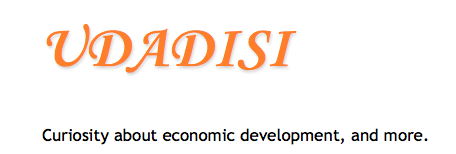How large are the differences in perception/opinion among members of different political parties, say for example Republicans and Democrats in the US? Bullock et al., find that the difference might be more illusory than real when members face incentives (payments) when answering survey questions. This is the abstract:
Partisanship seems to affect factual beliefs about politics. For example, Republicans are more likely than Democrats to say that the deficit rose during the Clinton administration; Democrats are more likely to say that inflation rose under Reagan. We investigate whether such patterns reflect differing beliefs among partisans or instead reflect a desire to praise one party or criticize another. We develop a model of partisan survey response and report two experiments that are based on the model. The experiments show that small payments for correct and “don't know” responses sharply diminish the gap between Democrats and Republicans in responses to “partisan” factual questions. The results suggest that the apparent differences in factual beliefs between members of different parties may be more illusory than real.A draft of the paper is here.
At first sight it seems that political ideology might be valued much less by the party members than I would have originally thought.

No comments:
Post a Comment